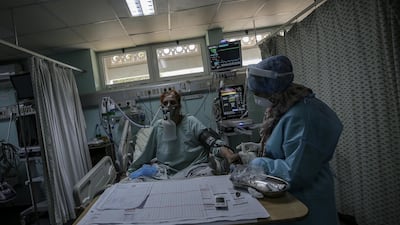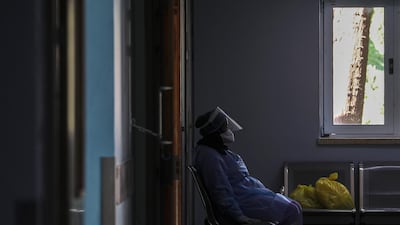“Prison-like” Gaza is two weeks away from hospitals reaching maximum capacity, which could lead to “people dying on the streets or at home”, the UN said on Thursday.
Cases have doubled over the past month in besieged Gaza, with over 580 daily cases and single-digit deaths as the number of infected people nears 30,000 and those killed by the illness crosses the 130 mark.
“If this trend doesn’t stop in two to three weeks, hospitals will have to turn people away,” said UNRWA director in Gaza Mattias Schmale. “People will die on the streets or at home if we don’t get this sorted,” he said at an online seminar about Palestinian refugees held by the Middle East Institute.
“I realise some of the data may not sound very dramatic from a US perspective, but one has to keep in mind in Gaza, the prison-like conditions, being cut off from the world, is like a cruise ship and we know what happened ion cruise ships when there was an outbreak,” Mr Schmale said.
Part of the worsening situation lies in Gaza’s failing health sector, which Mr Schmale said has “collapsed totally”.
The provision of oxygen is one of the biggest challenges faced by the health sector, as power cuts make manual respiratory assistance necessary, further straining limited resources.
Authorities therefore suggested the idea of expanding the partial shutdown into a full lockdown.
“Half the population depends on daily paid work. These include taxi drivers and people selling items like cigarettes on the street and the worry is that if you lock the place down, there would be half a million people without income," Mr Schmale said.
The struggle to balance public health and the economy is just as delicate as in the rest of the world although in Gaza, the implications could be far greater.
“This is all happening on the 14th year of [Israeli] blockade with regards to Gaza bringing the population to its knees,” he said.













